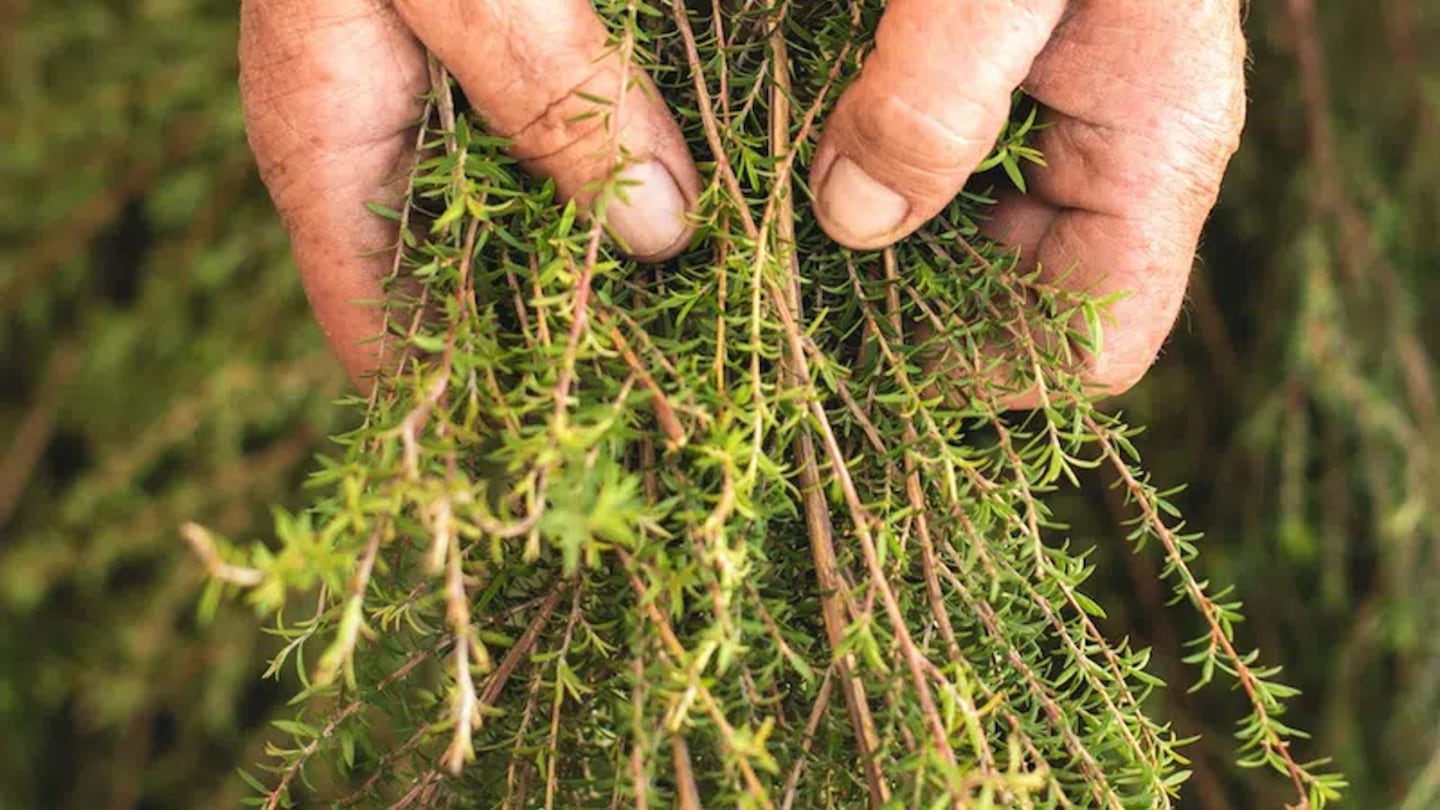Mānuka plantations of more than five million trees are growing across 130ha across the East Cape, with Manuka Bioscience paying Te Whānau a Apanui landowners an annual rent for forestry rights. The landowners are also shareholders in the company.
The partnership has helped the company become the largest producer of mānuka oil in the world.
“But the essential oil is relatively new and expensive to produce compared to other oils with similar efficacy,” CEO Stuart Cairns says, “so we have to create demand in a competitive environment. It’s a balancing act... too many competitors will drive the price down.”
But their advantage lies in the level of triketones—an organic chemical compound—which is higher in East Cape Mānuka than in any other area of New Zealand.
It’s a magic formula, which Cairns says may be due to a combination of geography and climate.
“Whether that changes over time, no one can be sure. We do know that the Australians are using a clonal genetic development programme to improve the level of triketones in the plant,” he said.
Yes, the Aussies are also cashing in on mānuka oil. They have more than 80 species of Leptospermum growing over there, including the white-flowered variety of Mānuka, Leptospermum scoparium, that is found in New Zealand. The Australian government also supports the development of the manuka oil industry.
The outcome of a long legal battle has likewise allowed Australian-made honey to use the Māori word mānuka.
However, scientific research shows mānuka oil is 1,000 times more powerful than mānuka honey.
Māori used almost every part of mānuka for its medicinal value, to reduce fever, as a remedy for stomach problems and diarrhoea, to ease coughing, and to treat skin conditions.
So the high level of triketones in the East Cape oil that increases its antimicrobial properties may eventually be a commercial game-changer for Mānuka Bioscience.
A six-week clinical trial it ran showed a clear improvement in reducing the severity of eczema in adults and children, and more work is being carried out on dosage levels. A trial is also planned for the treatment of ’school sores’ or impetigo, using mānuka oil as the active ingredient.
“To build volume, we need large distributors or users, and those distributors or large users don’t care about the provenance; its more about the efficacy,” Cairns said.
But as he mentioned earlier, mānuka oil is expensive to produce.
Hauling 1 tonne of mānuka brush in a remote East Cape location produces just 3 kilograms of oil over 2-3 months at an on-site satellite distillation unit.
The plant is hardy and can withstand most weather conditions. However heavy rain can disrupt harvesting because it’s difficult to move machinery.
So the magic touch of the company’s research and development unit will be vital to the growth of the company’s profits and to the shareholder value of Te Whānau a Apanui landowners.



